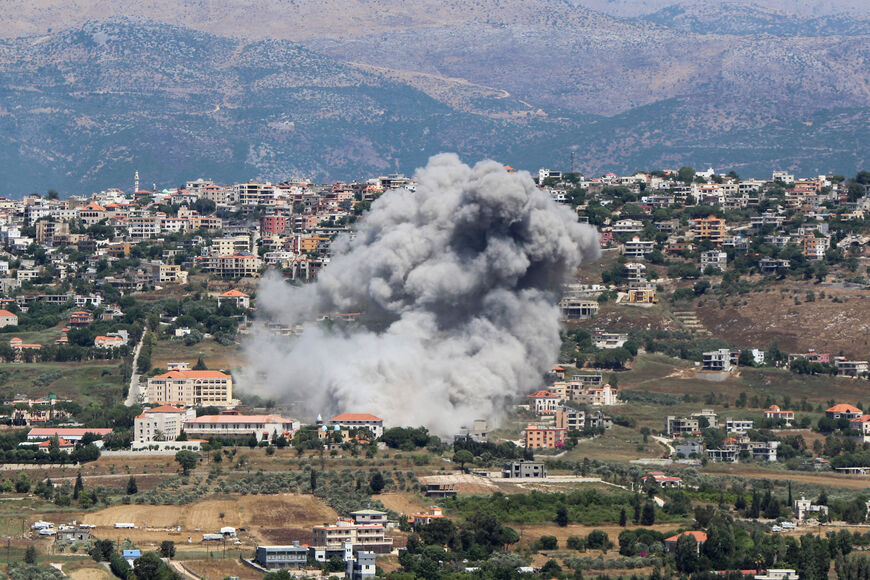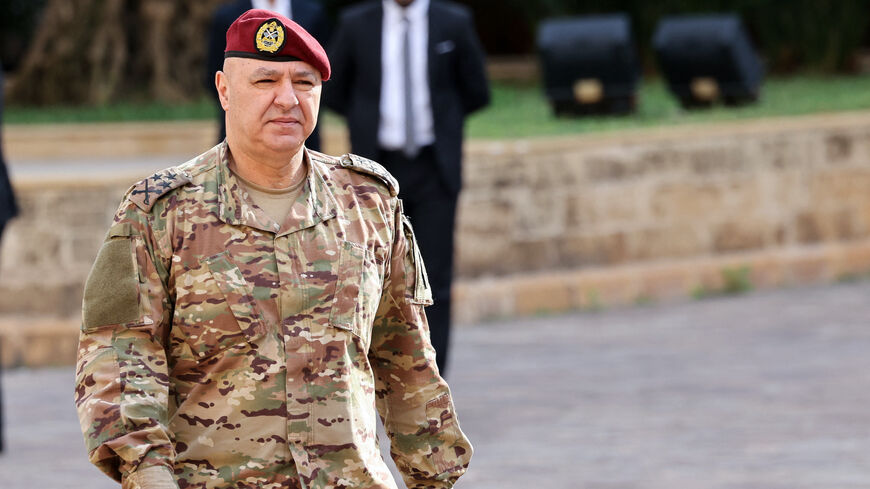India, Jordan join chorus of countries warning against travel to Lebanon
The fighting between Lebanon’s Hezbollah and Israel has escalated in recent days, prompting several countries to recommend against travel to Lebanon due to concerns over a war breaking out.

BEIRUT — India and Jordan were among the countries that issued travel warnings for Lebanon on Friday, joining a growing list of concerned states as confrontations between the Israeli army and Hezbollah threaten to expand into a full-blown war.
Jordan’s Foreign Ministry in a Friday statement called on Jordanians to “avoid travel to the sisterly Lebanese republic at the present time,” citing unspecified “developments” in the region and the "safety” of citizens abroad. The ministry reiterated that it issued a travel advisory for Lebanon back in late October, shortly after the start of the Gaza war.
India’s embassy in Beirut said on Friday that its citizens should “exercise caution” in the country, but stopped short of calling on them to avoid travel. “In view of the current situation in Lebanon, all Indian nationals in Lebanon are advised to exercise caution and remain in contact with Embassy of India in Beirut,” the embassy noted.
The Irish Department of Foreign Affairs said that citizens should avoid travel to Lebanon and that those currently in the country should leave while commercial options are available, citing “intensifying clashes along the southern border in recent weeks” in a statement that was updated on Friday.
Lebanese media reported on Thursday that Russia told its citizens to avoid traveling to Lebanon. The Russian ambassador in Beirut, Alexander Rudakov, told the local news outlet Elnashra on Thursday that the embassy did not issue a statement prohibiting travel. Rather, he said he recommended against visiting because of events in the south, according to Elnashra.
Germany’s Foreign Office updated its travel advisory to Lebanon on Wednesday, calling on German nationals to “urgently” leave the country. The update came one day after German Foreign Minister Annalena Baerbock visited Beirut.
“Tensions in the border areas with Israel are heightened and could escalate further at any time,” the office said, warning of potential attacks against foreigners and tourist facilities, including hotels.
In a similar move, the Netherlands issued a stern warning on Wednesday for its citizens to leave Lebanon while commercial flights are still available due to the increasing threats between Hezbollah and Israel.
The Dutch Foreign Ministry said the current travel warning to the small Mediterranean country is “red,” urging its citizens not to travel there whatever their situation.
“It is unsafe in Lebanon, and the situation remains very unpredictable,” the ministry warned.
Earlier on Tuesday, Canada called on its citizens in Lebanon to leave “while they can.”
In a statement, Foreign Minister Melanie Joly called on Canadians to leave while commercial flights remain operational.
“The security situation in Lebanon is becoming increasingly volatile and unpredictable due to sustained and escalating violence between Hezbollah and Israel and could deteriorate further without warning,” she warned. “It is not the time to travel to Lebanon.”
“Canada is not currently offering assisted departures or evacuations for Canadians in Lebanon, and these are not guaranteed,” Joly added.
Last week, Israel's Channel 12 reported that Canada was preparing to evacuate 45,000 Canadians from Lebanon. The channel quoted Joly as telling her Israeli counterpart, Israel Katz, that her country is planning “the largest evacuation we have ever undertaken” if a war in Lebanon breaks out.
Australia joined Canada on Tuesday and recommended against travel to Lebanon “due to the volatile security situation. The Australian Department of Foreign Affairs and Trade also called on Australians in Beirut to leave on currently available flights before the situation further deteriorates.
Similarly, Switzerland said Tuesday that travel to Lebanon has now become “inadvisable.” The Swiss Federal Department of Foreign Affairs (FDFA) warned on its website of the growing risk of escalation in the country.
“A significant deterioration of the security situation in Lebanon can occur at any time,” it added.
The FDFA also advised its nationals in Lebanon who wish to leave now to use available commercial options, saying those who wish to remain must be aware that “the Swiss Embassy in Beirut has only limited capacity to provide services or emergency assistance” in case the security situation deteriorates.
Last Friday, Kuwait’s Foreign Ministry also asked its citizens in Beirut to leave “as soon as possible” in light of the current situation.
Before Kuwait, Sweden’s Ministry of Foreign Affairs last Thursday issued its “most stringent advisory” against all travel to Lebanon, asking its nationals in the country to leave while viable options remain.
The Iran-backed Hezbollah movement and Israel have been engaged in daily cross-border fire since the war in the Gaza Strip erupted last October. The skirmishes, which had been limited to tit-for-tat attacks, have spread in recent weeks, with the two parties striking deeper into the other's territory.
The increasing attacks coincide with Israeli warnings to wage an all-out war on Lebanon to eliminate the threat posed by Hezbollah. The group has also escalated its rhetoric, with its leader, Hassan Nasrallah, threatening last week that “no place” in Israel will be safe in the event of war.
In a televised speech last Wednesday, Nasrallah said leaders of armed groups from Iran, Iraq, Syria, Yemen and other countries had offered to send thousands of fighters to back Hezbollah in its fight with Israel. Nasrallah claimed to have declined the offer, saying his organization has more than 100,000 fighters.
The United Nations warned Wednesday that a war in Lebanon would be “potentially apocalyptic.”
A war involving Lebanon “will draw in Syria . . . it will draw in others,” Under-Secretary-General for Humanitarian Affairs and Emergency Relief Coordinator Martin Griffiths told reporters in Geneva.
Adam Lucente contributed to this report.









